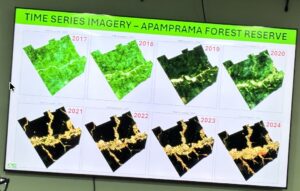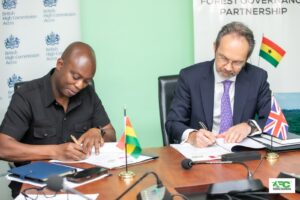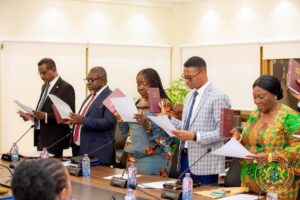
Syed Farid Alatas
A society dominated by scientists and engineers will lack moral compass as science can scientifically and systematically study certain aspects of reality, but it does not have the ability to tell an individual whether something is right or wrong, ethical or otherwise, evil or good.
Sociologist Prof Dr Syed Farid Alatas from the National University of Singapore said that a society without scholars and thinkers in fields such as literature is a dangerous society.
Science, Syed Farid said, is not able to give a person an ethical position on any matter.
“This can only come from philosophies, ethical system, religion and literature is a means of conveying that ethical or moral standpoint,” he told NSTP.
Pointing out examples of earlier tradition, such as the Malay hikayat (tales) or syair (lyrical poems), Syed Farid said these were literary means of conveying what is right and what is wrong.
The recent debate with regard to choosing between literature and science came about when Council of Eminent Persons (CEP) chairman Tun Daim Zainuddin remarked that many Malays love literature because it is easy to pass, saying they should instead be doing engineering and science.
On Friday, in an immediate response to a news article on Daim’s comments, Syed Farid wrote on Facebook that the correct attitude is that all fields in the arts and sciences should be cultivated by the Malays and all Malaysians. He pointed out that literature should not be belittled.
“It is exceedingly difficult to be good in literature or to be a scholar of literature,” he wrote.
NSTP reached out to the author of ‘Applying Ibn Khaldun: The Recovery of a Lost Tradition in Sociology’ to get a clearer insight on why literature has a negative perception attached to it, something he agreed has been a problem for decades.
“There is an overal perception, for decades, that the science stream is superior than the arts stream,” he said.
Some students too, he agreed, ended up being pushed in the direction of science, eventhough they are interested in literature, due to peer pressure and encouragement from parents, noting that this is a negative trend.
Touching on Daim’s comments specifically, Syed Farid said while he is not sure if the former finance minister is simply trying to encourage more Malays to study science and engineering, he remarked that the call should not be made while denigrating humanities and social sciences.
“Regardless of what he actually meant, the point is there is a negative impression given to literature and it’s not healthy.
“People should not be made to feel that engineering or other sciences are superior to literature and other humanities. No serious scholar or educator would make that claim,” he said, adding that all great civilisations produced writers, poets and people of learning in various fields related to literature and humanities.
On the assumption that literature is easy to pass, Syed Farid said simply passing subjects, applies to all fields.
“If you want to be mediocre in literature, you can pass. Same thing goes for other fields. I think it comes from a lack of knowledge of what literature is, some people think it is simply about reading, understanding a novel or a poem.
“It is far easier to understand a novel than it is to understand partial deferential equation,” he said, adding that the truth is that literature is rather complex as it is not just about reading but also interpreting as well as understanding literary devices.
When asked what can be done to change this mindset that literature is an easy option as compared to the sciences, Syed Farid said there has to be a revamp of the education system in which equal emphasis is given to all areas, especially in the younger stages of a student’s life.
“It is necessary that students who are science inclined be introduced properly to the arts and humanities and vice versa.
“It is important that both understand the logic of the other and appreciate the kinds of truth. Arts and sciences produce different kinds of truth,” he said.
Citing an example of elucidating the rate of poverty in a village, Syed Farid said this can be done both using science and arts.
“You can use science, for instance economics and statistics, to study the rate of poverty in a village.
“You can also illustrate the poverty in a village through poem or painting,” he said, adding that one can’t be considered superior to the other as knowledge can be gained through both.
“An all rounded person will have both abilities, not just the ability to understand cold hard facts but also to empathize, to feel, to have emotions, these are important skills,” he said.






